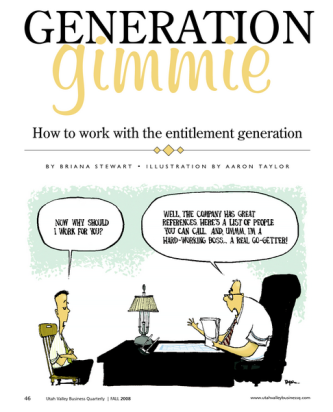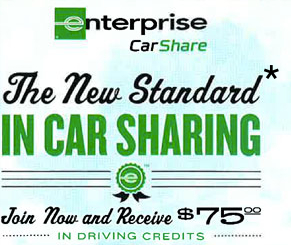
We all know that the newspaper industry has fallen on hard times as of late: Ad revenues are down, subscription rates are plummeting to record lows, publishers are closing up shop left and right; even the ones that are still in business are severely trimming their personnel and overhead. We’re told that all of this is happening due to the consequences of living in the New Digital Age: back when the Internet really started to take off as a platform for content consumption, publishers initially allowed all of their content to be viewed online for free, as a way to drum up readership and popularity. Eventually, though, that online readership would overtake physical subscriptions as the chief means of getting one’s news fix, which disrupted a number of paradigms. Online ad revenue wasn’t worth as much, users were posting and sharing articles without permission, and worst of all, no one was on board with the idea of paying to read anything anymore.
Some might say that’s actually a good thing, that everyone should have access to information as freely as possible. That’s a commendable idea in theory, however it creates a huge problem for newspapers as a business model– where’s the money going to come from?
Knowing this, and being a person who likes to “vote with their money,” as they say, I was determined to do my part to make sure quality journalism still had a (paid) place in this world. I decided to get a subscription to the Saturday and Sunday New York Times. Not a huge investment, I know, but I figured every little bit helps. Besides, I mused, if I tell enough of my hipster friends in Brooklyn about my newfound antiquated hobby, maybe reading newspapers will become “cool” again. I would spark a crusade to save publishing as we know it.
Brimming with self-satisfied pride at my wonderful idea, I (ironically, in hindsight) went online and ordered the Weekend Times, or “The Weekender” as the ads like to promote it. It was early March, 2013, and the confirmation email I received informed me that my first paper would arrive the next weekend (how prompt!)– specifically, the 16th of March. Here is a journal of what transpired.
Saturday, March 16: No paper delivered. Figured it was a fluke, assumed Sunday’s edition would be there. Excitement still palpable.
Sunday, March 17: No paper delivered. Wondered if they had the wrong address or something. Called customer service, received a refund on that week’s deliveries. Was asked if my building was locked/allowed access, assured them that the front door to the building was unlocked. Confirmed delivery would take place next weekend.
Saturday, March 23: No paper delivered. Called customer service again, they looked in the notes, told me they would speak with “Dispatch” to make sure deliveries came. Started to wonder if paper was coming, but being stolen by another resident. I am, after all, a late riser.
Sunday, March 24: Got up early. No paper delivered. Called, received a refund on this week’s deliveries. Again asked if the delivery person had access to the building. Like 89% of New Yorkers, I live in an apartment complex with an unlocked outer door, and a locked interior security door. The area in-between (the “airlock”) is where papers get left, I explain. Was told that sounded fine, no reason for papers not being delivered, was assured delivery next weekend. Excitement no longer palpable.
Saturday/Sunday, March 30/31: Out of town for a wedding, but a friend is coming into town and staying at my place. Asked her if she could grab the papers if she sees them. Return home, no papers. Maybe she read and recycled them. Checked. Nope. Called friend. Did you see any newspaper deliveries while you were here? No, she replies. Called customer service, received a refund, asked more than once by a few different agents whether I lived in a locked building. No. I don’t. I promise. Was told that they were sending an email to the “Dispatch Manager” to make sure this gets resolved, and they’re going to put an address label on the paper.
Tuesday, April 2: Convinced myself they’re being taken by another resident. Asked building manager if I could check security footage to see if papers are being abducted. He obliged. They’re not. Faith in my fellow tenants restored. Faith in the New York Times diminishing.
Saturday/Sunday, April 6/7: No papers delivered. Called. Refunded. Asked if I live in a locked building. Laughed and nearly hung up. Did not hang up. Placated with assurances.
Saturday, April 13: Success! A paper was waiting for me as I went off to work Saturday afternoon. Had an address label on it. For the right apartment. I figure the arduous process is over– some giant hiccup has been cleared away, whatever it could have been, and the Times will flow like milk and honey.
Sunday, April 14: Another paper! A full weekend delivered. Very impressed. Wondered why I was impressed. Excitement has returned in some measure.
Saturday, April 20: No paper delivered. Figured it’s got to be a joke at this point. It’s not. Called. Refunded. Assured.
Sunday, April 21: Paper delivered. Hmm. Maybe they were out of yesterday’s edition. Laughed at my attempt to reason.
Saturday, April 27: No paper delivered. No call. No attempt. No assurance. Possibly the penultimate straw.
Sunday, April 28: Paper delivered. No longer matters. Call customer service. Refunded for Saturday. Asked to speak to the “Resolution Department.” On hold for five minutes. Got in touch with a “supervisor.” Had them look in the notes. Was told that they would send an urgent message to “Dispatch.” Explained that that had already happened at least three times. “Well, we can try putting an address label on it. Do you live in a locked building?”
Cancelled subscription to the Times Weekender.
It is absolutely feasible that my particular experience described above was unique. Well, it’s possible, anyway. But it certainly makes me wonder: maybe the Internet isn’t the reason for the downfall of the newspaper industry after all?



Recent Comments